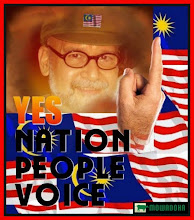 Courtney Holt, President of MySpace Music, during his Q&A with Tom Silverman at the New Music Seminar 2009
Courtney Holt, President of MySpace Music, during his Q&A with Tom Silverman at the New Music Seminar 2009 Fan Relationship Management:
Quit Your Day JobWhat is hard is not to get the cash but to have that relationship with your fans
"What is hard is not to get the cash but to have that relationship with your fans."
This was a major theme stressed by Courtney Holt, President of MySpace Music, during his Q&A with Tom Silverman at the New Music Seminar 2009 that would reverberate throughout the day-long event.
Communication between an artist and his or her fans is an essential element in a musician's survival, let alone ability to succeed.
Informing fans of news and upcoming shows via direct communication is a great way to establish that bond and keep fans interested and turn passive listeners into diehard followers.
During the "Fan Relationship Management: Quit Your Day Job" panel, Tom Silverman laid out four distinct types of fans:
first, there is the potential fan.
He or she might stream a hit single or search for an artist on YouTube, but hasn't yet decided to buy the music.
Second, there is the passive fan.
He or she might come to a live performance or pay for a few downloads.
Third, there is the active fan.
He or she will buy new album releases and bring friends to concerts.
Finally, there is the super fan.
This type of fan buys every release, comes to every show with friends, and buys all the merchandise.
The trick is to turn as many people into super fans as possible and that is why establishing regular and meaningful communication between the artist and the fan is so important.
Social networking websites like Twitter and Facebook can be very effective if used correctly.
But, while adding friends is simple, turning them into fans and maintaining a relationship with them is a lot more difficult.
What should the artist do?
"The goal of all these social networks tools is to get the email address of all artists' fans," said Steve Greenberg, the Founder/CEO of S-Curve Records.
Email remains the most effective and reliable form of communication between the fans and the artists, in part because it is a direct link to the fan as opposed to through an intermediary.
Despite the importance of fostering a bond between the artist and the fan, musicians should be careful though not to spend too much time talking to fans and not enough time making music.
Artists should consider hiring people who specialize in managing musicians' online lives.
Also, musicians should take care not to spread themselves too thin.
Instead, they should, "start local, start tribal," noted Terry McBride, CEO of Nettwerk.
Having a small, loyal community of fans is better than a sprawling, loosely connected group of people who aren't so dedicated.
Professional musicians would be nothing without their fans.
Artists become well-known and respected because people appreciate the art they create.
Artists need to reach out to their fans and create a community in order to create new followers and turn the existing ones into super fans.
From left to right :Tom Silverman (Founder and Director NMS/Co-Conductor),
Emily White (Partner, Whitesmith Entertainment),
Ted Cohen (Managing Partner, TAG Strategic / Co-Conductor),
Terry McBride (CEO, Nettwerk),
Steve Greenberg (CEO and Founder, S-Curve Records) and Tim Westergren (Founder and CSO, Pandora)









No comments:
Post a Comment